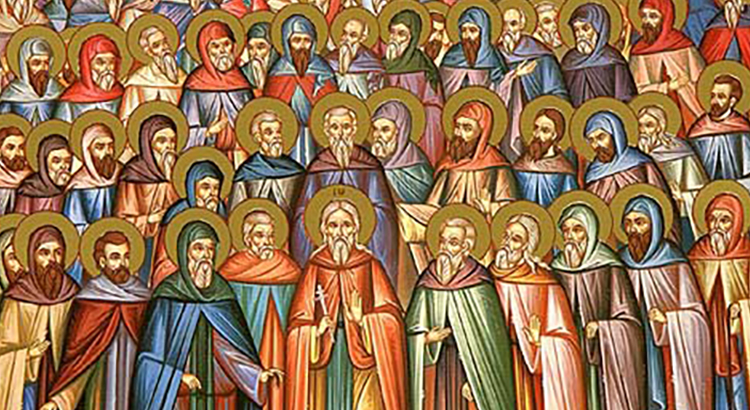Memory of the Saints and the Prophets
Reading of the Word of God
Alleluia, alleluia, alleluia
You are a chosen race,
a royal priesthood, a holy nation,
a people acquired by God
to proclaim his marvellous works.
Alleluia, alleluia, alleluia
Genesis 8,6-13.20-22
At the end of forty days Noah opened the window he had made in the ark and released a raven, which flew back and forth as it waited for the waters to dry up on earth. He then released a dove, to see whether the waters were receding from the surface of the earth. But the dove, finding nowhere to perch, returned to him in the ark, for there was water over the whole surface of the earth; putting out his hand he took hold of it and brought it back into the ark with him. After waiting seven more days, he again released the dove from the ark. In the evening, the dove came back to him and there in its beak was a freshly-picked olive leaf! So Noah realised that the waters were receding from the earth. After waiting seven more days, he released the dove, and now it returned to him no more. It was in the six hundred and first year of Noah's life, in the first month and on the first of the month, that the waters began drying out on earth. Noah lifted back the hatch of the ark and looked out. The surface of the ground was dry! Then Noah built an altar to Yahweh and, choosing from all the clean animals and all the clean birds he presented burnt offerings on the altar. Yahweh smelt the pleasing smell and said to himself, 'Never again will I curse the earth because of human beings, because their heart contrives evil from their infancy. Never again will I strike down every living thing as I have done. As long as earth endures: seed-time and harvest, cold and heat, summer and winter, day and night will never cease.'
Alleluia, alleluia, alleluia
You will be holy,
because I am holy, thus says the Lord.
Alleluia, alleluia, alleluia
In this passage. we can observe the patient waiting of Noah, who wanted to be sure that the waters of the flood had drawn back from the earth so that animals and people would be able to leave the ark without dying. With the image of the dove being let out three times, a dove that has become a symbol of peace, Noah seems to want to communicate the expectation of a man who had listened to the Word of God and His promise of salvation. Peace requires patience and waiting, but not passive, resigned waiting. Peace also waits for its artisans who know how to watch and, in a way, prepare the ground to make it into a reality. Finally, Noah himself leaves the ark with his family and the living creatures saved from the waters. He immediately "built an altar to the Lord" as a sign of gratitude for their salvation and the peace that had been re-established on earth. By doing this, he re-established the communion with the Lord that humanity had interrupted with violence and that will be definitively ratified by the renewal of the covenant between God and Noah. The Lord solemnly commits himself to Noah to preserve life on earth forever, but his commitment begins with a statement that we should always keep in mind, "the inclination of the human heart is evil from youth." This is not a pessimistic vision of humanity, but a warning that requires attention and awareness, because evil is strong and insinuates itself in our heart and our thoughts without us noticing. This awareness helps us recognize our fragility and trust in the strength that comes from God.
